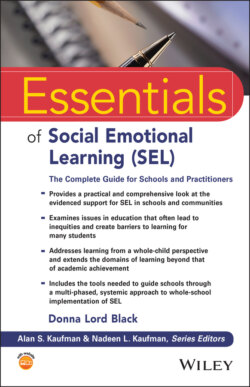Читать книгу Essentials of Social Emotional Learning (SEL) - Donna Lord Black - Страница 55
HISTORICAL INFLUENCE Research on Emotional Intelligence
ОглавлениеThe concept of social‐emotional learning has been around for centuries, dating back to Ancient Greek times when Plato wrote The Republic. Plato believed that people’s minds weren’t the only thing needing to be educated, but also their character. He wrote that all learning had an emotional base and the education of an individual began with educating her or his soul, beginning in infancy and early childhood (Myungjood, 1994). Since his writings, the concept of emotional intelligence has been the focus of a growing body of research, which perhaps was triggered by the 1995 publication of Daniel Goleman’s book Emotional Intelligence: Why It Can Matter More Than IQ. Although the book focused primarily on the role of emotional intelligence in society, there was one chapter that specifically focused on emotional intelligence in schools. This chapter drew attention to the neuropsychological research showing the influence of emotional processes on cognition and learning, which was what many educators and psychologists had been asserting for years. The book shed light on the role and impact of emotions on the process of learning, and this, in turn, led to a movement in education devoted to the applications of emotional intelligence to teaching and learning. Goleman’s subsequent publication in 2006 was titled The Educator’s Guide to Emotional Intelligence and Academic Achievement: Social‐Emotional Learning in the Classroom and was devoted specifically to the applications of emotional intelligence to social‐emotional leaning and character education in schools.
